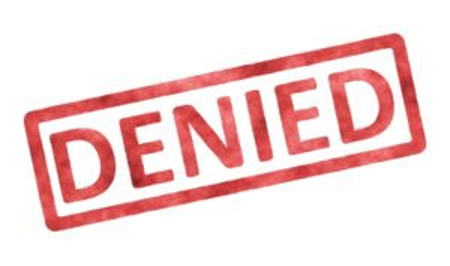Within 21 days from the date a worker provides notice of an injury, the employer/carrier may deny liability. If so, it issues a Notice of Workers’ Compensation Denial (LIBC-496) to the employee and the claim is now closed. However, at this time, the injured employee may choose to pursue a claim through the litigation system.
An employer or insurer may decline to pay workers’ compensation benefits and typically lists any of the following reasons on LIBC-496:
- The employee did not suffer a work-related injury.
- The injury was not within the scope of employment.
- The employee was not employed by the defendant.
- The employee did not give notice of his/her injury or disease to the employer within 120 days within the meaning of Sections 311-313 of the Workers’ Compensation Act.
- Other good cause.
The definition of injury also includes aggravation of a pre-existing condition or disease contracted that results from employment. Also, the last ground for denial of a claim – other good cause – may be explained by an employer in more detail on the LIBC-496.
Claimants who receive a denial of their claim may contest this denial, which will be heard by a workers’ compensation judge. Claimants and employers may testify at this hearing, as well as present medical evidence to support their position. Both parties have the right to call witnesses and retain an attorney.
The procedure for filing a petition to appeal a denial is as follows:
- To file a petition, an applicant may acquire a copy online or upon request a, Form LIBC-362, will be mailed.
- A petition for an injury must be filed within three years of the date of injury. Filings for occupational disease claims, disability, or death must occur within 300 weeks from last exposure. A petition must be filed no later than three years from that date. Failure to file a petition within these rules may result in a loss of a claim.
- Claimants must give notice of their work-related injury or disease to their employer within 120 days of the date they knew (or should have known) that they were injured or had contracted a work-related disease.
- When a petition is filed with the Workers’ Compensation Office of Adjudication, it will be assigned to a judge for a hearing. Parties will be notified of the hearing date. The court will also request that the parties are fully prepared for the initial hearing.

